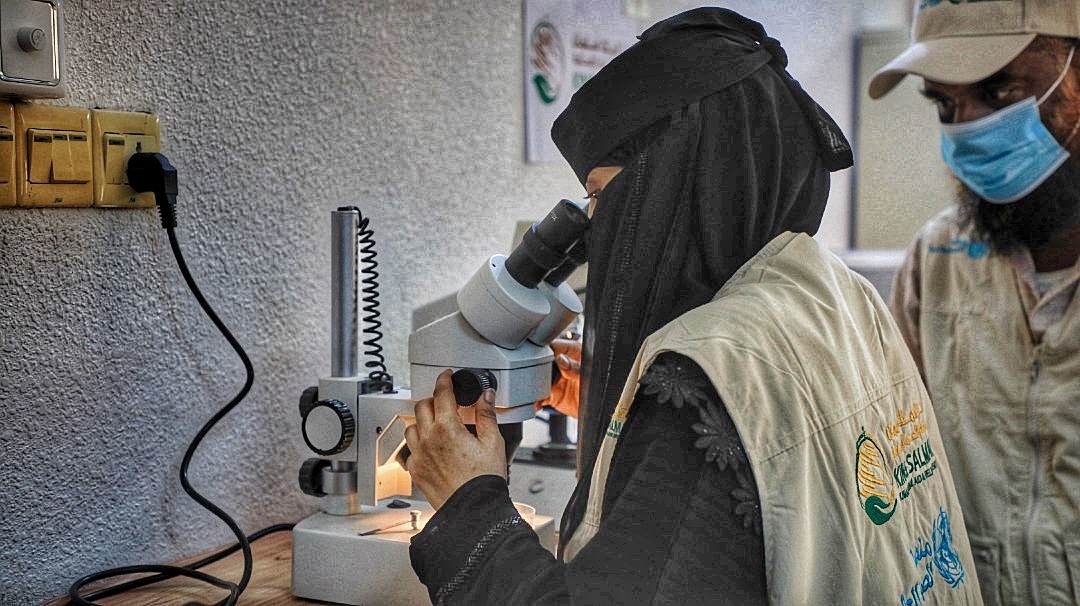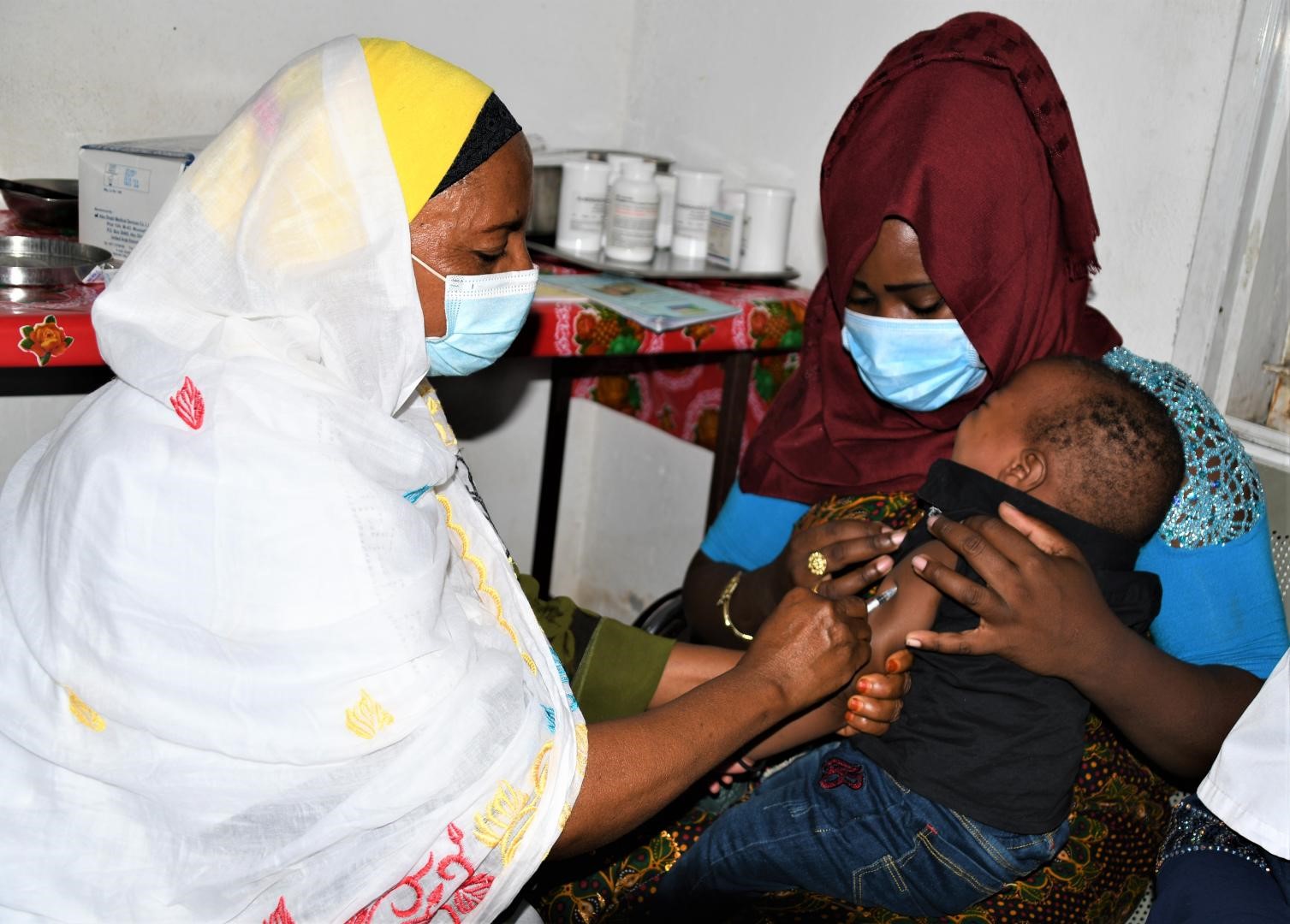Thanks to its contributors, WHO has been able to help countries fight COVID-19 while still maintaining other important health services.
War-torn Yemen has an active malaria prevention programme, children in Comoros are being vaccinated for measles and rubella, and emergency teams are on the ground in Tonga in the wake of a volcanic eruption and tsunami.
Bangladesh has welcomed a new contribution to build up its health system, and a project is under way to improve substance abuse treatment and prevention in Latin America and the Caribbean.
With WHO’s support, countries are taking aim at cervical cancer, with new treatment services in Nigeria and a campaign in Ethiopia to vaccinate girls against human papillomavirus, the virus that causes almost all cases of cervical cancer.
Read on for details of these stories:
WHO supports whole-of-UN response to volcanic eruption and tsunami in Tonga
 A teenager stands in front of his home in Sopu on Tongatapu, Tonga’s main island, showing the damage caused by the Hunga Tonga-Hunga Ha’apai underwater volcano eruption and tsunami. ©UNICEF/Wolfgramm
A teenager stands in front of his home in Sopu on Tongatapu, Tonga’s main island, showing the damage caused by the Hunga Tonga-Hunga Ha’apai underwater volcano eruption and tsunami. ©UNICEF/Wolfgramm
WHO is coordinating with other United Nations agencies and partners to respond to the volcanic eruption and tsunami in Tonga, including acting as a central channel of information during telecommunications outages.
“All of us here at WHO and in the broader UN family are thinking of Tonga right now and doing what we can to support the government’s response efforts,” said Sean Casey, WHO’s Health Cluster Coordinator for the Pacific.
Volunteers keep up the fight against malaria in Yemen

Amid war and pandemic, community volunteers are dedicating time to Yemen’s Malaria Control and Prevention Project, a joint effort of WHO and the King Salman Humanitarian Aid and Relief Centre to stop malaria transmission.
The 2020 World Malaria Report estimates that nearly 19 million people in Yemen are living in areas at risk for malaria transmission.
To stop cervical cancer, Ethiopia immunizes girls and Nigeria begins treatment services
A new pilot project in Nigeria’s Niger state is providing screening and treatment services for cervical cancer to 5,000 women, while in Ethiopia, nearly 2 million girls were vaccinated in January against human papillomavirus (HPV), a leading cause of the deadly disease.
Cervical cancer annually claims the lives of more than 300 000 women, about 90 percent of whom live in low- and middle-income countries. WHO’s strategy of screening, treatment and HPV vaccination is designed to eliminate cervical cancer.
PAHO launches project to improve substance-use disorder policies in Latin America and the Caribbean

The new project will run for 18 months and focus on training health and social workers. The participating countries are Colombia, Costa Rica, Ecuador, Guyana, Jamaica and Panama.
People who suffer from substance-use disorders often face stigma, social isolation, and premature death. But only an estimated one in eight people with a substance abuse disorder receive treatment.
“There is a relationship between substance-use disorders and the likelihood of developing complications from COVID-19,” said Dr Renato Oliveira e Souza, Unit Chief for Mental Health and Substance Use.
Comoros works to catch up on routine childhood vaccines that were delayed by the pandemic

The Ministry of Health of the Comoros recently vaccinated some 265 000 children for measles and rubella. The islands of Anjouan, Mohéli and Ngazidja took part in the campaign.
Like many other countries, Comoros is trying to catch up on childhood vaccinations after its programme was disrupted by COVID-19. WHO and UNICEF launched an urgent appeal last year to reverse a decline in childhood vaccinations worldwide.
"We have seen how COVID-19 has hampered vaccination activities in the vast majority of countries, leading in some cases to resurgences of diseases that were previously under control,” said Comoros WHO Representative Dr Abdoulaye Diarra. “One epidemic must not make us forget to prevent another."
Sweden provides funding to strengthen Bangladesh’s health system

The $US 8.5 million from Sweden will be channelled through WHO Bangladesh to help the country move toward universal health coverage. Plans include boosting the country’s mental health care services, expanding its capacity to detect and contain drug-resistant microbes and upholding the quality of services in the country’s Cox Bazar district, home to about 900 000 Rohingya refugees.
* * *
Partners and donors recognized in this feature include Gavi-The Vaccine Alliance, the King Salman Humanitarian Aid and Relief Centre, Sweden, UNICEF and the United Nations.
WHO thanks all governments, organizations and individuals contributing to the COVID-19 response around the world since the beginning of the outbreak, and in particular those who have provided fully flexible contributions, to ensure a comprehensive fight against the disease.
* * *
Member States and other governments since 2021:
Australia, Belgium, Canada, Comoros, Denmark, Egypt, France, Germany, Ireland, Isle of Man, Israel, Italy, Japan, Kingdom of Saudi Arabia, Kuwait, Lesotho, Malta, Mauritania, Monaco, Netherlands, New Zealand, Norway, Philippines, Portugal, Republic of Korea, Slovak Republic, Spain, Sweden, Switzerland, Thailand, United Kingdom, United States of America.
Other partners since 2021:
African Development Bank Group, African Reinsurance Corporation, Alma Jean Henry Charitable Trust, Ancash, Asian Development Bank, Bill and Melinda Gates Foundation (BMGF), Central American Bank for Economic Integration (BCIE), China Medical Board, COVID-19 Solidarity Response Fund, European Commission (ECHO, NEAR, DG-INTPA), Foundation for Innovative New Diagnostics (FIND), Fundacion MAPFRE, FYT, Gavi-The Vaccine Alliance, International Development Association (IDA), International Organization for Migration (IOM), Islamic Development Bank (IDB), King Salman Humanitarian Aid and Relief Center (KSRelief), Kuwait Fund for Development, National Philanthropic Trust (NPT), Rockefeller Foundation, Secretariat of the Pacific Community, Sony, Susan Thompson Buffett Foundation, Task Force for Global Health (TFGH), The UN Resident Coordinator Office (UNRCO), International Drug Purchasing Facility (UNITAID), United Nations Central Emergency Response Fund (CERF), United Nations Children's Fund (UNICEF), United Nations Development Programme (UNDP) and the Multi-Partner Trust Fund (MPTF), United Nations High Commissioner for Refugees (UNHCR), United Nations Multidimensional Integrated Stabilization Mission in Mali, United Nations Office for South-South Cooperation (UNOSSC), United Nations Office for the Coordination of Humanitarian Affairs (UNOCHA), United Nations Population Fund (UNFPA), United Nations Postal Administration (UNPA), United Nations World Food Programme (WFP), Veolia Environment Foundation, Vital Strategies, WHO Foundation, World Bank.

